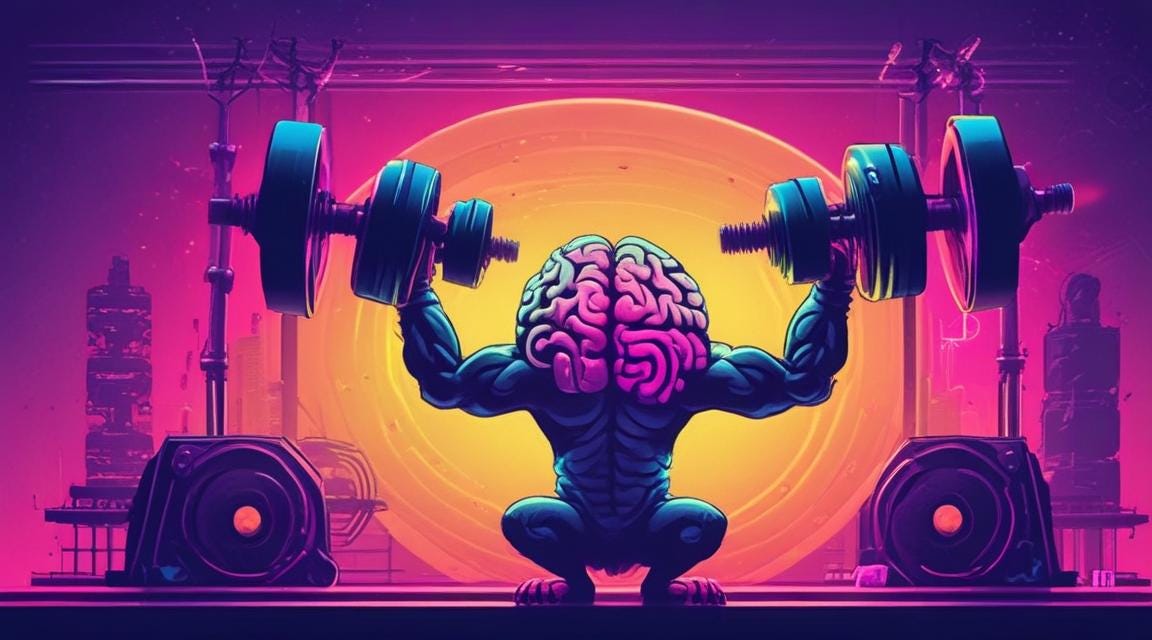Increase Your Mental Strength: Understand How to Measure Mental Toughness
This episode delves into the depths of mental toughness, measuring it, understanding its components, and applying it in our everyday lives.
Table of Contents
Introduction to Mental Toughness
Measuring Mental Toughness
Eight Components of Mental Toughness
Life Control
Emotional Control
Goal Orientation
Achievement Orientation
Risk Orientation
Learning Orientation
Confidence in Abilities
Interpersonal Confidence
Resilience vs. Challenge
Mental Toughness and Performance
Interpreting Mental Toughness Test Results
Mental Toughness vs. Mental Sensitivity
Importance of Self-Awareness
Common Challenges for Mentally Tough Leaders
Advantages of Mental Sensitivity
Practical Tips for Building Mental Toughness
Self-Talk Technique
Attention Control
Applying Mental Toughness in Education
Mental Toughness in the Workplace
Developing a Growth Mindset for Mental Toughness
FAQs
🌟 Introduction to Mental Toughness
Mental toughness is a quality that profoundly influences an individual's ability to manage stress, overcome challenges, and succeed in various aspects of life. Whether in the tech industry or everyday situations, the mentally tough have an edge in coping with difficulties and pushing their limits to achieve greatness.
🛠 Measuring Mental Toughness
Mental toughness isn't a one-size-fits-all concept. When measuring it, one should consider:
Mindset: The way a person thinks shapes their mental toughness.
Positive Psychology: Originating from Martin Seligman, focuses on cultivating strengths and virtues.
Grit: Angela Duckworth's idea that persistence and passion are essential for long-term goals.
🎯 Eight Components of Mental Toughness
💪 Life Control
Life control is all about self-worth and belief in one’s abilities to influence life events. Some people face challenges head-on while others hesitate, even if they have similar skills. This difference is purely mental.
��� Emotional Control
Emotional control pertains to managing reactions. Everyone experiences emotions like anger or joy, but keeping them in check can help maintain poise and handle situations more effectively.
🏁 Goal Orientation
Having a clear purpose and visualising the steps to reach it gives people purpose. Without purpose, goal-setting is futile. Those who can align their goals with a clear purpose are more motivated to achieve them.
🏆 Achievement Orientation
Mere goal-setting isn't enough. Achievement orientation requires mental readiness to put in the effort, even when the task is challenging. This mental preparedness can separate success stories from failures.
🌈 Risk Orientation
Risk orientation determines whether one sees new challenges as opportunities or threats. Some people thrive on new and unknown challenges while others shy away.
📚 Learning Orientation
Those with a learning orientation treat failures as learning experiences rather than setbacks. They constantly seek feedback and ways to improve, which propels them toward success.
🌟 Confidence in Abilities
Confidence in abilities is not just about believing in oneself but in one's specific skills. Those who lack it might hold back despite their competence, while confident individuals step forward and utilise their talents fully.
👥 Interpersonal Confidence
Interacting and engaging with others is vital. Those with interpersonal confidence can influence, learn, and collaborate effectively, crucial traits in both personal and professional realms.
🛡 Resilience vs. Challenge
Resilience is about bouncing back from adverse situations—picking oneself up after a fall. However, Dr Suzanne Kobasa found that successful people did more than just survive; they embraced challenges, which energized and motivated them, making resilience an active rather than a passive quality.
🌐 Mental Toughness and Performance
High mental toughness helps individuals perform under pressure. For example, customs officials with high mental toughness performed better because they could handle stress and make quick decisions effectively.
📊 Interpreting Mental Toughness Test Results
Understanding test results can help in self-awareness:
Ability Tests: These measure specific skills.
Normative Measures: Compare individual results against a vast database to classify them on a scale from 1 to 10.
A person's score doesn't define them but helps understand their tendencies and areas for improvement.
🔍 Mental Toughness vs. Mental Sensitivity
Mentally sensitive individuals may not jump into situations as quickly as their tougher counterparts. However, they often avoid burnout and tend to be more intuitive and creative. Being mentally sensitive isn’t a weakness; it’s just a different approach to handling life’s challenges.
🧠 Importance of Self-Awareness
Self-awareness is the key to leveraging one’s strengths and managing weaknesses. A leader aware of their high mental toughness can understand why their straightforward approach might alienate others and adjust accordingly.
🧗♀️ Common Challenges for Mentally Tough Leaders
Leaders with high mental toughness often struggle to understand why others can't meet their standards. They may unintentionally discourage their team by projecting their confidence onto others who lack it.
🎨 Advantages of Mental Sensitivity
Mentally sensitive individuals take measured steps, often avoiding overextending themselves. They also bring a unique, intuitive creativity that balances out the more structured approach of their tougher peers.
🧰 Practical Tips for Building Mental Toughness
💭 Self-Talk Technique
Self-talk involves replacing negative thoughts with positive ones. This technique, popular in sports, can be adopted in daily life to build confidence and approach challenges more positively.
🔎 Attention Control
Increasing one's attention span can drastically improve productivity and reduce stress. Techniques such as mindfulness and structured work periods can extend attention spans from the average 8 minutes to over 45, transforming effectiveness in tasks.
📘 Applying Mental Toughness in Education
Teaching concentration and mental toughness in schools can revolutionise learning. Techniques that extend attention spans used in favourite activities, like playing video games, can be transferred to studying, making students more efficient learners.
🏢 Mental Toughness in the Workplace
Employing mental toughness in leadership roles is vital. Leaders should balance their toughness with sensitivity to ensure they understand their team’s needs and perspectives.
🌱 Developing a Growth Mindset for Mental Toughness
Developing a growth mindset involves embracing challenges and learning from mistakes. It encourages individuals to view failures as opportunities for growth, fostering resilience and a continuous pursuit of improvement.
FAQs
Q: What is mental toughness? A: Mental toughness refers to an individual's ability to manage stress, overcome challenges, and remain resilient in the face of adversity.
Q: How can someone build mental toughness? A: Techniques such as positive self-talk, mindfulness, and improving attention span can help build mental toughness. Understanding one’s own tendencies and continuously seeking to grow also play a crucial role.
Q: Are mentally tough people always better leaders? A: Not necessarily. While mental toughness helps in handling pressure, self-awareness is crucial for mentally tough leaders to ensure they do not alienate others or misunderstand those with different approaches.
Q: Can mental sensitivity be a strength? A: Yes. Mentally sensitive individuals often avoid burnout and can be highly intuitive and creative, offering valuable perspectives in both personal and professional settings.
Q: How does learning orientation contribute to mental toughness? A: Learning orientation involves treating failures as learning experiences, which encourages continuous improvement and adaptability, key aspects of mental toughness.
Embracing mental toughness in today’s rapidly changing world can equip individuals with the skills needed to handle the unknowns of the future. Whether in their careers or personal lives, those who develop mental toughness positions themselves for greater success and fulfilment.












